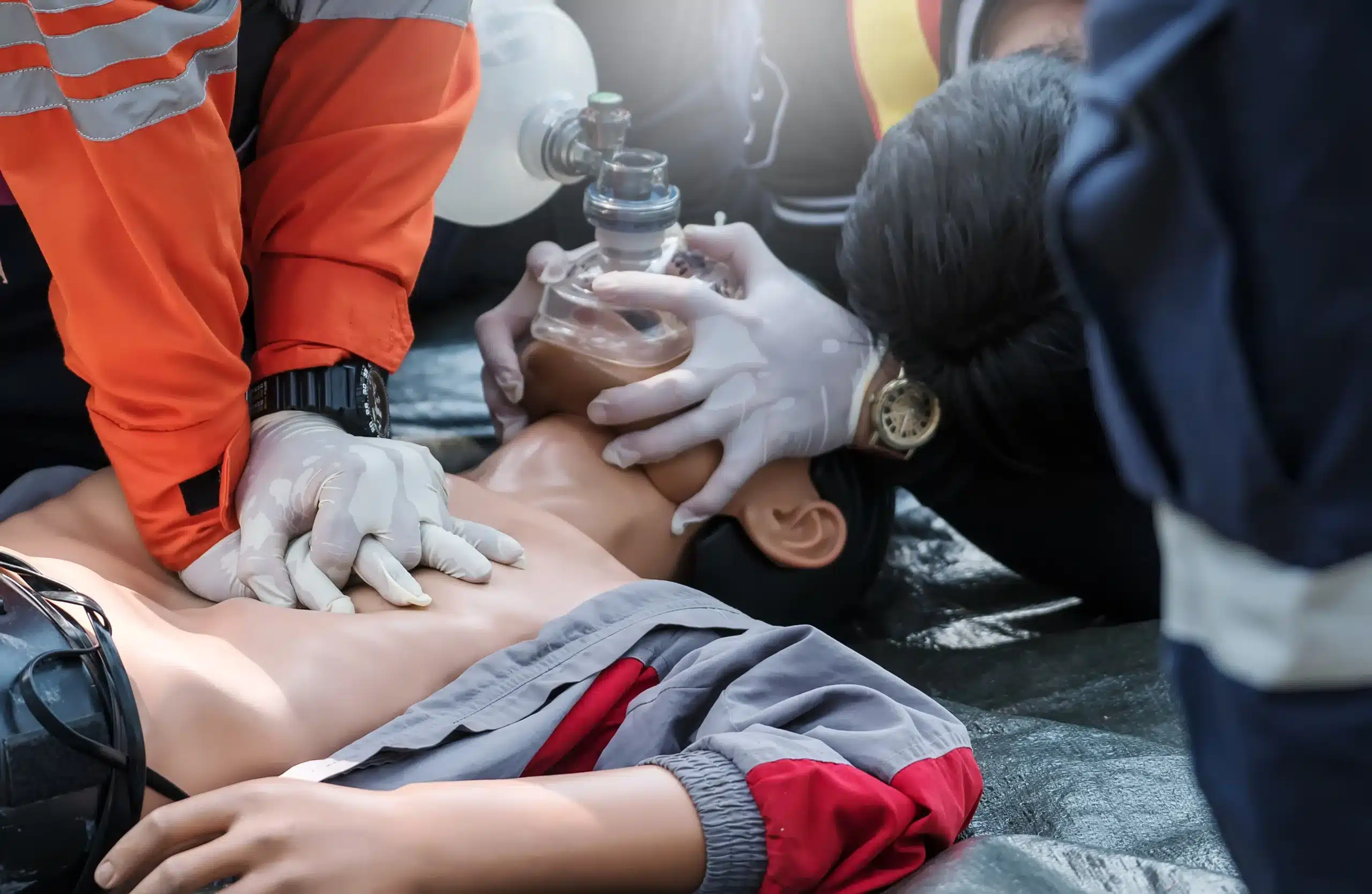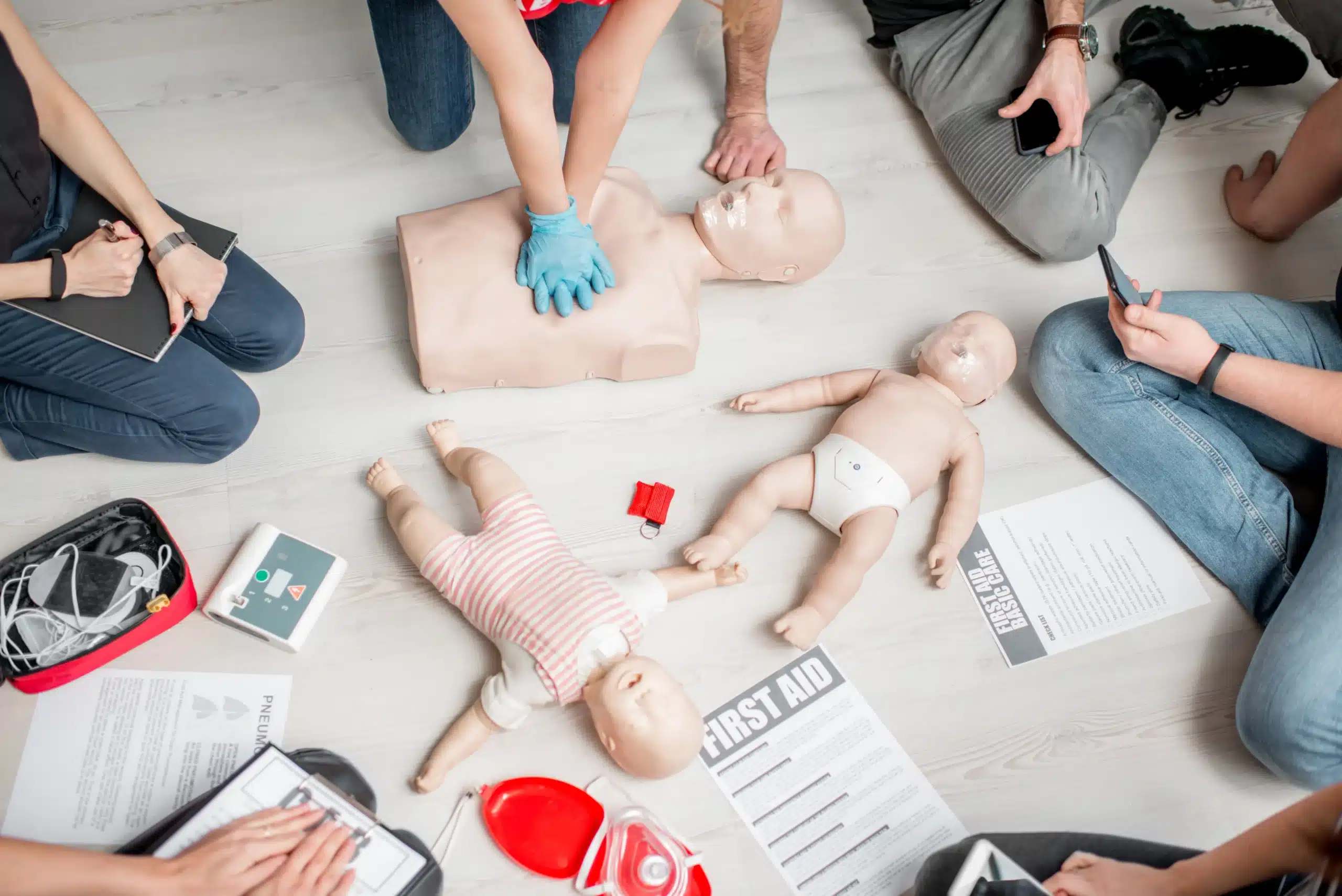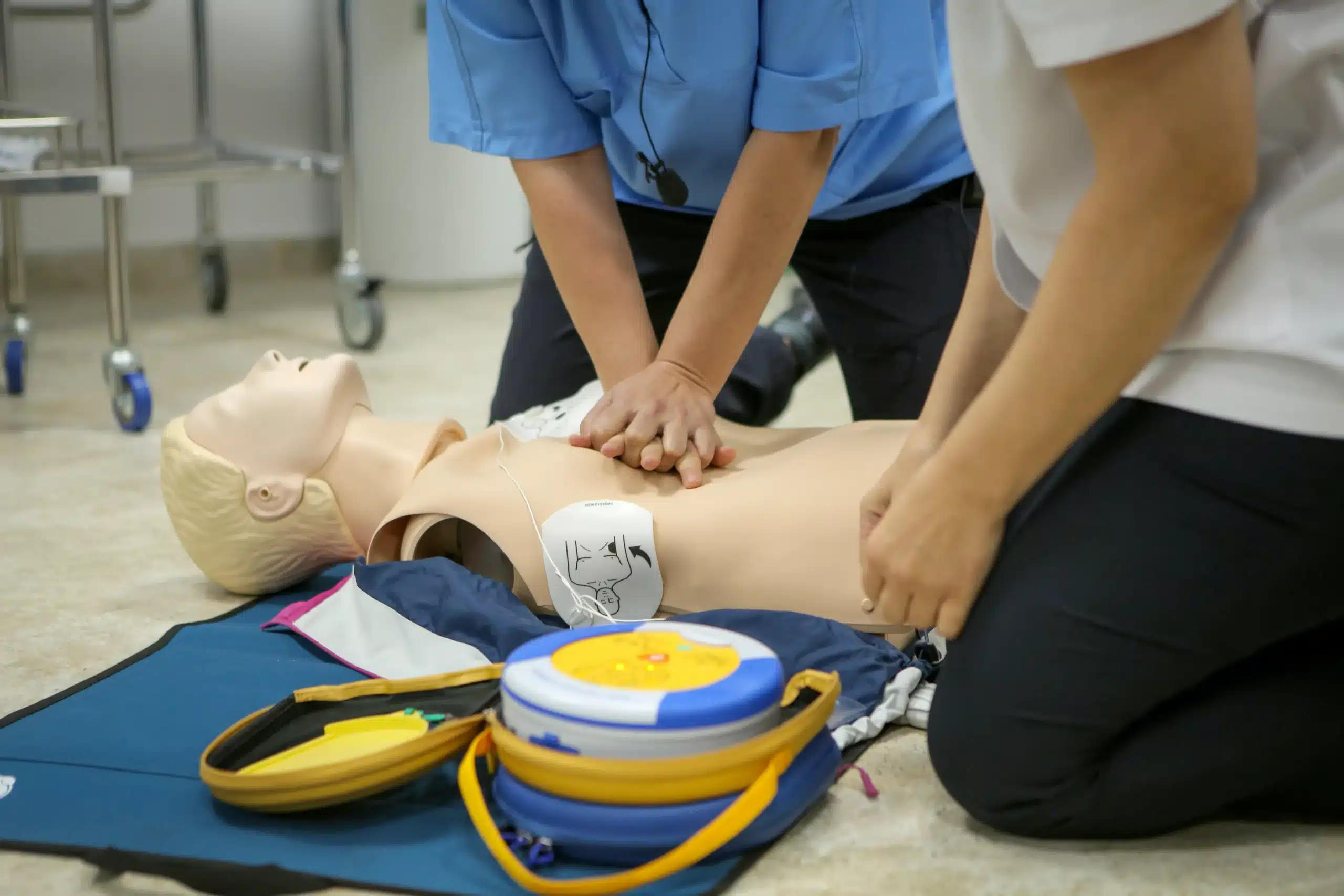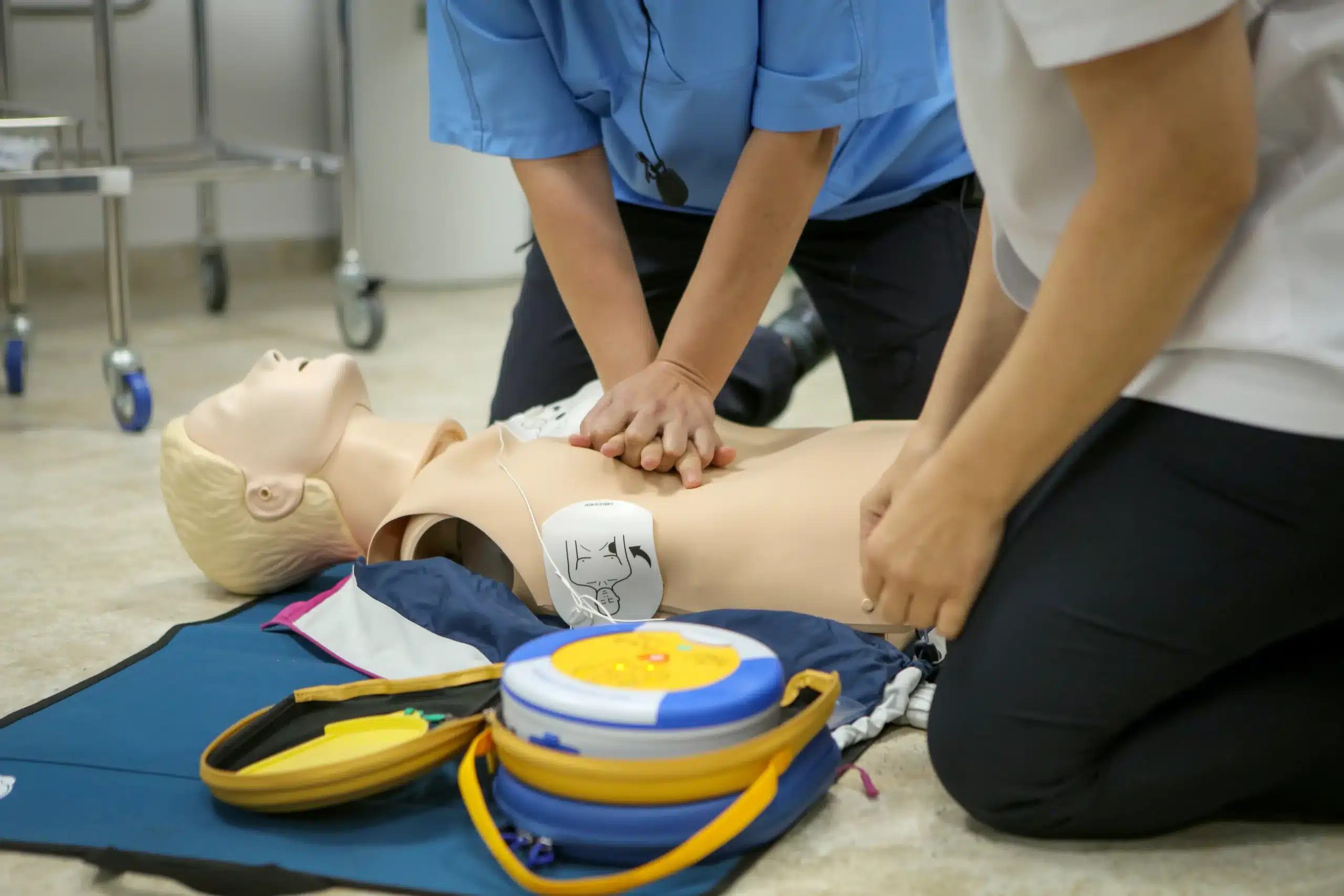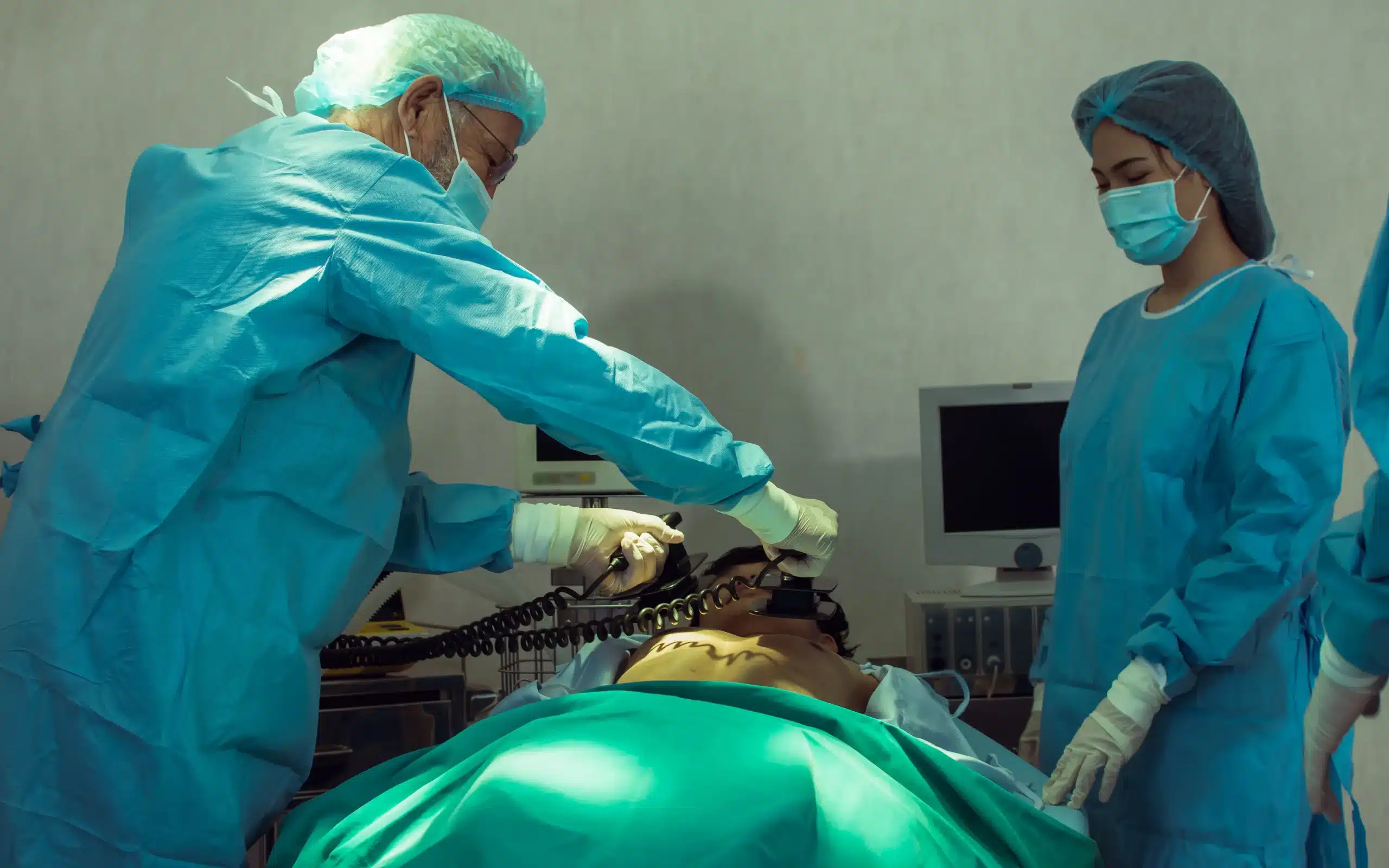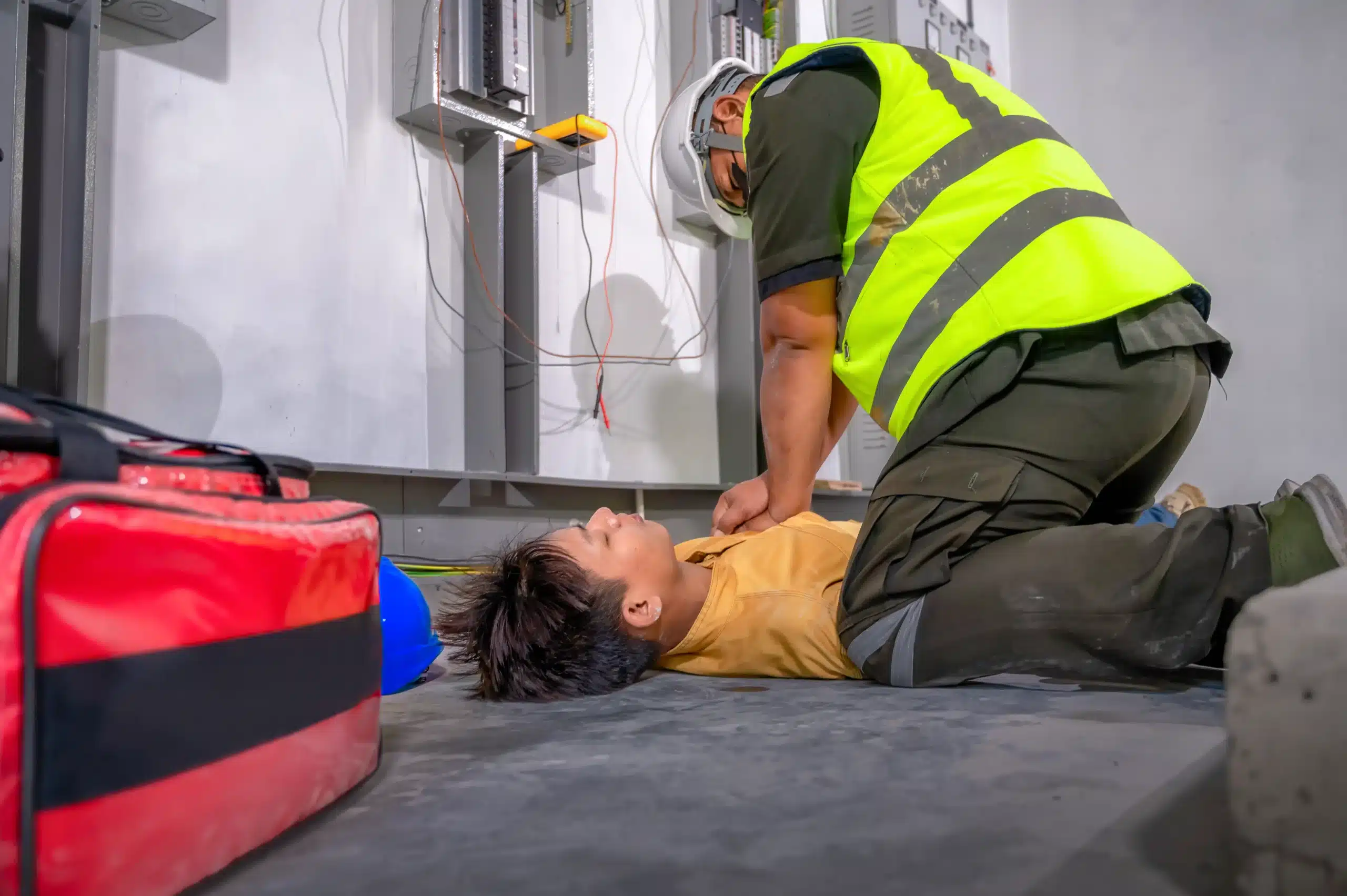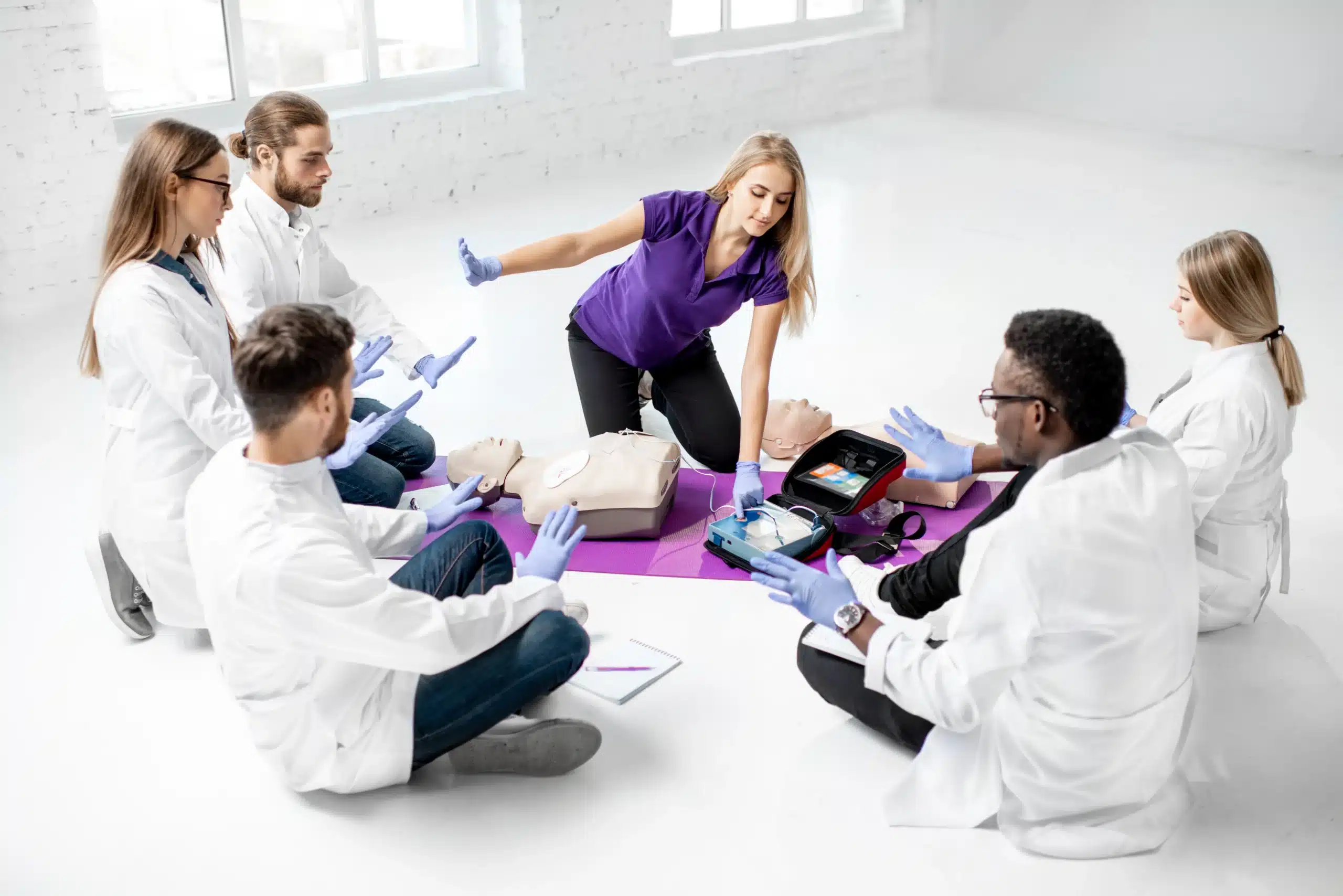Living in Capitola means enjoying a vibrant coastal community, but it also means being prepared for anything life throws your way, especially when it comes to the safety of our children. Pediatric CPR and first-aid training in Capitola provides parents, caregivers, and community members with the essential skills to respond to emergencies involving infants and children. This article will guide you through the world of pediatric CPR and first aid, highlighting the critical differences from adult CPR and the specific techniques you’ll learn in a certification course. We’ll explore local training options in Capitola, including programs offered by Safety Training Seminars, the American Red Cross, and other providers. We’ll also discuss the importance of choosing a qualified instructor and the steps involved in maintaining your certification.
Key Takeaways
- Pediatric CPR and First Aid equip caregivers with life-saving skills. Learn how to respond to emergencies involving infants, children, and adolescents, covering situations like choking, breathing difficulties, and injuries.
- Choose a Pediatric CPR and First Aid class that fits your needs. Consider factors like in-person vs. online learning, class duration, cost, and instructor qualifications. Look for AHA-certified instructors with pediatric experience.
- Stay current with your certification and refresh your skills regularly. Recertification ensures you’re always prepared and confident in providing care during a pediatric emergency. Most certifications are valid for two years.
What is Pediatric CPR and First-Aid?
Pediatric CPR and First-Aid focuses on the unique needs of infants, children, and adolescents. It teaches caregivers how to respond to emergencies involving young patients, providing immediate care until professional medical help arrives. This specialized training covers various situations, from choking and breathing difficulties to injuries and sudden illnesses. It emphasizes age-appropriate techniques and considerations, recognizing the physiological differences between children and adults.
Why It Matters for Caregivers
Anyone regularly caring for children, including parents, grandparents, babysitters, teachers, and camp counselors, benefits from Pediatric First Aid and CPR training. These skills empower caregivers to confidently handle emergencies, potentially saving a child’s life. Knowing how to assess a situation, perform CPR, and administer basic first aid can make a critical difference in the moments following an accident or sudden illness. It’s a proactive step towards ensuring the safety and well-being of the children under your care. This training provides not only practical skills but also the confidence to act quickly when it matters most. For more information on the importance of this training, check out this helpful article on pediatric first aid.
Key Differences from Adult CPR
While some basic principles overlap, pediatric CPR differs significantly from adult CPR. The size and physiology of a child require modified techniques for chest compressions, rescue breaths, and airway management. Even the way you assess a child’s responsiveness and breathing differs. Comprehensive CPR training programs highlight these crucial distinctions, ensuring caregivers learn the correct procedures for each age group. Understanding these differences is essential for providing effective care in a pediatric emergency. For example, the American Red Cross outlines specific requirements for instructors teaching these crucial skills.
Pediatric CPR and First-Aid Classes in Capitola
Finding the right pediatric CPR and first-aid class in Capitola is crucial for parents, caregivers, and professionals working with children. This section outlines local options, from established providers like the American Red Cross to specialized training centers.
Safety Training Seminars Programs
Safety Training Seminars offers convenient and affordable AHA certification courses in Capitola and surrounding areas. They provide BLS, ACLS, PALS, and CPR training, often at your preferred location. Their low-price guarantee makes them a budget-friendly option. Contact them to discuss scheduling a class tailored to your needs.
American Heart Association Courses
The AHA sets the standard for CPR and ECC training. Their pediatric courses cover emergencies ranging from respiratory issues to cardiac arrest, aligning with the latest AHA Guidelines for CPR and ECC. Look for AHA-authorized training centers in Capitola to enroll.
Red Cross Offerings
The American Red Cross provides comprehensive adult and pediatric first aid/CPR/AED training. This combined course covers essential life-saving skills for both children and adults. Check the Red Cross website for class schedules and locations in Capitola.
Local Hospital and Medical Center Classes
Hospitals like Dominican Hospital and medical centers in and around Capitola often offer CPR and first-aid training. Capital Health, for example, is an AHA Training Center providing various CPR and ECC programs. Check with local hospitals and medical centers for their pediatric course offerings. Many also have community health education departments that provide Friends and Family CPR classes.
What to Expect in a Pediatric CPR Class
Knowing what to expect can help you feel prepared and confident going into your Pediatric CPR class. These courses are designed to equip you with the skills to respond effectively in emergencies involving infants and children.
Course Content and Skills
Pediatric CPR classes cover a range of essential life-saving techniques. You’ll learn how to recognize the signs of a child or infant in distress, including cardiac and breathing emergencies. The curriculum typically includes instruction on performing CPR for different age groups, how to relieve choking, and how to use an Automated External Defibrillator (AED) safely and effectively on a child. Many courses also integrate basic first aid training for common childhood injuries and illnesses. For a comprehensive overview of course content, you can explore resources like the American Red Cross training programs.
Hands-On Practice
A significant portion of the class involves hands-on practice. You’ll work with mannequins designed to simulate infants and children, allowing you to develop muscle memory and gain confidence in performing CPR and other emergency procedures. This practical training is essential for mastering the correct techniques and ensuring you can react quickly and efficiently under pressure. Most classes provide ample opportunity for this hands-on learning in a supportive environment. Companies like A+ Safety Training emphasize this practical approach.
Certification Process
After successfully completing the course requirements, including demonstrating proficiency in the practical skills, you’ll receive a certification. This certification is typically valid for two years and signifies your competence in Pediatric CPR and first aid. It’s an important credential for anyone working with or caring for children, demonstrating your preparedness to handle emergencies. For specific certification details, refer to organizations like the American Red Cross or the American Heart Association.
Choose the Right Class
Finding the right Pediatric CPR and First Aid class depends on a few factors, including your learning style, schedule, and budget. Let’s break down the key things to consider when making your decision.
In-Person vs. Online
One of the first decisions you’ll face is choosing between an in-person class and an online course. In-person classes provide hands-on learning and direct interaction with an instructor, allowing for immediate feedback and personalized guidance as you practice. Online courses offer more flexibility, allowing you to learn at your own pace and on your own schedule. Some organizations, like the American Red Cross, offer blended learning that combines online instruction with in-person skills sessions. For more information on blended learning, visit the American Red Cross website.
Class Duration and Scheduling
Class times vary depending on the provider and the specific course content. A Pediatric CPR and First Aid class can range from a couple of hours to a half-day session. Consider the total time commitment, including travel to an in-person class. Many training centers offer classes daily, making it easier to find a time that works for you. Safety Training Seminars provides a flexible schedule for busy professionals and parents.
Cost and Group Rates
The cost of Pediatric CPR and First Aid certification varies. Compare prices from different providers to find the best value. Many organizations offer group discounts, which can be helpful if you’re registering with a group. Safety Training Seminars is known for its competitive pricing and offers a low-price guarantee. Contact providers directly to discuss costs and any available discounts.
Instructor Qualifications
Knowing your instructor’s qualifications is key when choosing a pediatric CPR and first-aid class. It ensures you’re learning the most up-to-date, evidence-based practices. Look for instructors who meet these criteria:
Teacher Certification Requirements
Certified instructors should hold a current certification in adult and pediatric first aid/CPR/AED from a recognized organization like the American Red Cross or American Heart Association. This certification confirms they’ve met specific training standards and are knowledgeable in the subject matter. Many organizations require instructors to complete refresher courses to maintain their instructor status, ensuring their skills and knowledge remain current.
Pediatric Care Experience
Beyond basic certifications, experience working with children is a huge plus. Instructors with a background in childcare, healthcare, or education often have a deeper understanding of children’s unique needs and can offer more relevant, practical advice. Ask about an instructor’s pediatric training experience when making your decision. The more experience they have, the better prepared they are to handle the specific scenarios that may arise when caring for a child in an emergency.
Ongoing Instructor Education
The field of pediatric first aid and CPR is constantly evolving. High-quality instructors participate in ongoing professional development to stay informed about the latest guidelines and techniques. This commitment to continuing education ensures they’re providing students with the most effective and current information. Look for instructors who actively seek out opportunities to expand their knowledge and refine their teaching skills. This dedication translates to a better learning experience for you.
Recertification: Stay Up-to-Date
Knowing how to perform CPR and First Aid can make a real difference in an emergency. But guidelines and best practices change, so staying current with your certifications is essential. Regular recertification ensures you’re always prepared to provide the highest quality care.
Keep Your Skills Sharp
CPR and First Aid skills can fade over time. Regular practice and recertification refresh those skills and introduce you to any updated procedures. It’s a smart way to build confidence and ensure you’re ready to act quickly and effectively under pressure. Many organizations, like the American Red Cross, require instructors to maintain a base-level certification in Adult and Pediatric First Aid/CPR/AED and complete refresher courses to keep their instructor status active. This commitment to ongoing education benefits everyone.
How Often to Recertify
Generally, Pediatric First Aid/CPR/AED certifications are valid for two years. The American Red Cross provides a digital certificate upon successful completion of their course, which serves as a helpful reminder. Keeping track of your certification expiration date is crucial. Mark it on your calendar or set a reminder so you can recertify before it lapses. This ensures you’re always prepared to respond to a pediatric emergency.
Recertification Options in Capitola
Finding a recertification course in Capitola is easy. Safety Training Seminars offers a range of American Heart Association courses, including BLS, ACLS, PALS, and CPR certifications. With several choices available, you can find a class that fits your schedule and learning preferences. Contact us today to learn more about our CPR and First Aid classes.
Register for a Class in Capitola
Safety Training Seminars offers American Heart Association certification courses—including BLS, ACLS, PALS, and CPR—in Capitola and throughout Santa Cruz County. We also offer on-site classes across Northern California. Whether you’re in Capitola or a neighboring city, we can accommodate your scheduling needs.
Registration Steps
Ready to sign up? Visit our website to view our course calendar and select a class that fits your schedule. You can register online through our secure portal. If you have questions or prefer to register by phone, our customer service team is happy to help. You can also find us through our partner site, Bay Area CPR, for additional information and registration options.
Customer Support
We pride ourselves on providing excellent customer service. Our team is available daily from 8 am to 10 pm to answer your questions, assist with registration, and provide support. Contact us via phone or email.
Class Preparation
Preparing for your class is easy. We provide all the necessary materials, including the most up-to-date curriculum from the American Heart Association. For example, the BLS course covers adult, child, and infant CPR and AED use, giving you comprehensive life-saving skills. You’ll receive a digital certificate valid for two years upon successful completion. No prior experience is required.
Local Pediatric CPR Training Providers
Finding the right pediatric CPR and first-aid class in Capitola means understanding your options. Several organizations and institutions offer training, each with its own approach. Here’s a rundown of local providers:
Safety Training Seminars
Safety Training Seminars offers American Heart Association (AHA) BLS, ACLS, PALS, and CPR certification courses in and around Capitola. They can hold classes at your location or other sites in Northern California. A convenient option for busy parents, groups, or workplaces, Safety Training Seminars also has a low price guarantee.
American Red Cross
The American Red Cross provides a combined Adult and Pediatric First Aid/CPR/AED certification course. This covers recognizing and responding to various first aid, breathing, and cardiac emergencies for adults, children, and infants. This course often meets OSHA workplace requirements and other regulatory standards.
Heart CPR
Heart CPR offers pediatric first aid, CPR, and AED certification courses that meet California’s Emergency Medical Services Authority (EMSA) requirements. Their programs also satisfy Title 22 requirements for childcare providers, a good option for those working in daycare settings.
Capitola Fire Department
The Capitola Fire Department may offer CPR training. Contact them directly to inquire about pediatric CPR programs or resources.
Dominican Hospital
Dominican Hospital may also offer CPR training. Reach out to them directly to learn about any pediatric CPR and first-aid training they provide.
Advanced Pediatric Life Support
Consider Advanced Training
As a healthcare provider, staying up-to-date with the latest medical advancements and techniques is crucial for providing the best possible care. When it comes to pediatric emergencies, having advanced training can significantly impact your ability to respond effectively and potentially save a child’s life. Advanced Pediatric Life Support (PALS) builds upon the foundation of basic life support, equipping you with specialized knowledge and skills to manage complex pediatric emergencies. PALS certification courses cover a wide range of topics, including respiratory distress, shock, and cardiopulmonary arrest, emphasizing a systematic approach to assessment, intervention, and teamwork. Consider pursuing advanced training to enhance your skills and confidence in caring for critically ill children. The American Heart Association offers more information on pediatric training.
Advanced Courses in Capitola
If you’re in the Capitola area and seeking advanced pediatric life support training, several options are available. Safety Training Seminars offers PALS certification courses designed to meet the needs of healthcare professionals. These courses often incorporate hands-on simulations and case studies to reinforce learning and build practical skills. Check with local hospitals and medical centers, such as Dominican Hospital, as they may also offer PALS courses or other advanced pediatric training programs. For a broader overview of CPR training options in the area, you can explore CPR classes in Capitola. The American Red Cross also provides additional training in first aid, CPR, and AED.
Use Your Pediatric CPR Training
Real-Life Application
Pediatric first-aid and CPR training gives caregivers practical skills and the confidence to respond effectively in emergencies. It’s more than just a certification; it’s an investment in the safety and well-being of the children you care for. Whether you’re a parent, teacher, or childcare provider, having these skills can make a real difference. The American Red Cross training covers various first aid, breathing, and cardiac emergencies for infants, children, and adults, preparing you for a range of situations. Knowing how to respond to choking, allergic reactions, or sudden cardiac arrest can truly be life-saving.
Continuing Education
Just like any important skill, pediatric CPR requires ongoing practice and refreshed knowledge. The American Heart Association offers resources and courses designed for healthcare providers working with children. These courses reflect the latest guidelines for CPR and Emergency Cardiovascular Care (ECC), ensuring your techniques are current. Even if you aren’t a healthcare professional, staying up-to-date with current practices is essential. Regularly reviewing your training materials and taking refresher courses can help you maintain your skills and confidence. Instructors are also required to maintain certifications and complete refresher training, demonstrating the importance of ongoing education in this field. This commitment to continuing education benefits everyone, from instructors to caregivers, ensuring they can provide the best possible care in emergencies.
Related Articles
- CPR Classes in Santa Cruz: Find the Right One For You – Santa Cruz CPR Classes
- First Aid Classes in Santa Cruz: Your Complete Guide
- CPR Certification in Santa Cruz: A Complete Guide
- NRP Classes in Santa Cruz, CA – Santa Cruz CPR Classes
- NRP Certification Santa Cruz: Your Complete Guide – Santa Cruz CPR Classes
Frequently Asked Questions
What are the key differences between adult and child CPR? Child CPR techniques are adapted to a child’s smaller size and different physiology. This includes modifications to chest compression depth and rescue breath techniques. It’s essential to learn these specific techniques to provide effective care in a pediatric emergency.
How do I choose the right pediatric CPR class for me? Consider factors like your learning style (in-person vs. online), schedule, and budget. In-person classes offer hands-on practice and interaction with an instructor, while online courses provide flexibility. Also, compare class duration and cost between providers. Some offer group discounts, which can be a great option for families or groups of friends.
What kind of certification will I receive after completing the course? Upon successful completion, you’ll receive a certification in Pediatric CPR and First Aid, usually valid for two years. This certification demonstrates your competence in these life-saving skills.
What qualifications should I look for in a CPR instructor? Look for instructors certified by recognized organizations like the American Red Cross or the American Heart Association. Experience working with children is a plus, as is a commitment to ongoing professional development and staying updated on the latest guidelines.
How can I stay up-to-date with my CPR and first-aid skills after getting certified? Regularly review your training materials and consider taking refresher courses before your certification expires. This helps maintain your skills and ensures you’re prepared to respond effectively in an emergency.
